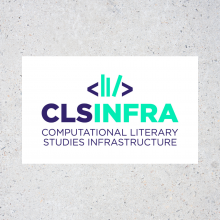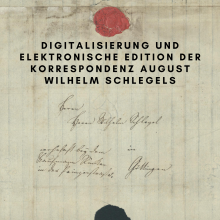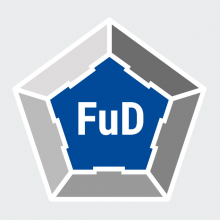Research Infrastructures
Using Overall Capacities
Strong with an Efficient Research Infrastructure
The basic idea behind the establishment of the competence center in 1998 was to use digital methods in every language and subject area and to develop tools for collaborative cooperation; a more than innovative approach at that time. Technical and social developments have changed rapidly over the past twenty years. Today, there are possibilities of location-independent collaboration that were unthinkable years ago. Therefore, technical and institutional cooperation as well as strategic and targeted coordination of national and international research infrastructures are required. In particular, this refers to collaborations between academic institutions that offer, for example, computer infrastructures for external shared use, information-related resources, scientific collections or other scientific services that are of interest for shared use. The University of Trier with the TCDH is part of the new Text + initiative, created within the framework of the new structures of the National Research Infrastructure Initiative (NFDI).
A European initiative we are involved in is the Digital Research Infrastructure for the Arts and Humanities initiative. It is the German participation in the ESFRI (European Strategy Forum on Research Infrastructures). The aim of this cooperation is the technological, content-related and organizational coordination between European infrastructures and research networks in the humanities and cultural sciences.
CLARIN-D is a research infrastructure project that is part of various research institutions in Germany, and which is funded by the Federal Ministry of Education and Research (BMBF).
DARIAH-DE supports humanities and cultural scholars who work with digital resources and methods in research and teaching. The association is building a digital research infrastructure and developing materials for teaching and continuing education in the field of Digital Humanities (DH).
What all initiatives have in common is the idea of building a sustainable research infrastructure, in order to establish digital research methods on an interdisciplinary basis. Existing research data must be networked more closely, and electronic tools for collaborative research must be further developed.
In the context of the “Grande Region”, the TCDH team is involved in regional collaborations with the universities in Luxembourg, Saarbrücken and Nancy, carries out joint research projects (LexicoLux, LuxoGramm) and organizes innovative conference and Conference concepts (2012 THATCamp Trier/Luxembourg, 2015 Autumn School in Trier und Luxemburg).







